Striking back at the growing substance abuse and addiction crises that have hit the Orthodox Jewish community with stunning ferocity, Teaneck area residents came out en masse on Sunday night to learn more about these rarely discussed issues at an awareness event hosted by Amudim.
Well over 600 men, women and teens flocked to Torah Academy of Bergen County where the standing room only crowd was riveted for more than two hours by a presentation that included hard hitting remarks that gave listeners multiple perspectives of this growing problem that has shattered families, and in all too many instances, claimed lives. While many in the Orthodox Jewish community have been reluctant to acknowledge the dual plagues of abuse and addiction, communal support in Teaneck was unanimous, with the Vaad Harabonim – Rabbinical Council of Bergen County and every shul and school in Teaneck endorsing the free event.
Rabbi Larry Rothwachs, director of professional rabbinics at Yeshiva University’s Rabbi Isaac Elchanan Theological Seminary and rabbi of Congregation Beth Aaron, addressed the religious imperative that obligates rabbonim to take action in situations where lives may be at risk, noting that those who fail to do so have blood on their hands. Rabbis must be part of the process when it comes to understanding, preventing and responding to abuse and addiction, noted Rabbi Rothwachs, who urged the community as a whole to reevaluate its tolerance for addictive substances including alcohol, marijuana and e-cigarettes.
Shedding light on how easy it is to become hooked on painkillers, Avi Shteingart LCSW/CASAC spoke about his own surprising encounter with addictive substances, finding himself dealing with difficult withdrawal symptoms when he began tapering off prescription opioids he had been taking for a relatively short amount of time following a serious accident. In addition to dealing with substance abuse in his own practice, Shteingart observed that more than half his clients are struggling with addictive behaviors including internet, pornography, sex, relationships, eating, gambling, spending and shopping. Stressing that addiction is a medical condition and not a sign of weakness, Shteingart spoke about the importance of providing children with safe ways of expressing their feelings in order to keep them from falling prey to addiction and the continuing need for communal support to help those who are suffering.
In a dramatic moment, a survivor identified only as Ezzy invited Amudim’s executive director Rabbi Zvi Gluck, to light a candle in memory of the many who have lost their lives to substance abuse before launching into the gritty tale of his own battle with addiction. Marveling at how his odyssey of pain and suffering that took him through crack houses and nearly claimed his life could one day be of help to others, Ezzy spoke passionately for over 45 minutes to the spellbound crowd about his struggle, sharing the pivotal moment when he realized that it was sobriety, not pills or alcohol that held true happiness, and that acceptance is the key to overcoming personal struggles.
Echoing previous speakers who addressed the importance of eliminating stigma, a disturbingly daunting barrier that prevents so many from seeking help, Zvi Gluck
emphasized the importance of appreciating the real and present dangers facing our children and called on listeners to demand that their schools provide age appropriate awareness and education programs. Decrying the shocking lack of communal support that hinders many from seeking treatment, Gluck shared the story of a mother of five who admitted that she was taking what was clearly a fatal path instead of getting help for her addiction because finding shidduchim for her children would be easier if she were dead than if she were in rehab.
Wrapping up the evening was Etiel Forman, who together with his wife Lianne, organized the event to break the stigma that keeps so many in crisis from reaching out for life-saving help.
Forman spoke of his daughter Elana’s struggle with substance abuse, explaining that his family felt that the time had come to go public with Elana’s story in the hopes that it would help others. Garnering the support of others in similar situations was impossible when their situation began to unfold, explained Forman, since addiction was a topic that was never discussed openly until relatively recently. Forman said that he and his family have been buoyed by the fact that members of the Jewish community who are dealing with addiction no longer have to suffer alone and urged the audience to band together to help those in crisis.
Forman described the evening as “a great first step.”
“I think that we as a community need to make sure that we follow through,” said Forman. “We now know that we have a captive audience who is listening and we have
to drive that listening into action.”
Lianne Forman echoed her husband’s words, noting the need for a continued commitment to educating area residents about prevention, awareness and communal support.
“Our hope was that no one should ever feel ashamed or alone,” said Lianne Forman. “We have heard feedback from people that this goal has already been achieved and we hope to continue the dialogue so that more people can come forward and get the help they or their loved ones need.”
One of largest awareness events ever hosted by Amudim, Gluck praised the Teaneck residents for coming out in force, noting that the unprecedented turnout was a clear indicator that the community was enthusiastic about facing the issues head on.
“There are times it seems as if we are repeating ourselves, begging people to seek help, to provide support for addicts and their families, to understand that addiction is a disease, but bringing those messages home again and again and again is the only way to stem the tide that is killing our community,” said Gluck. “Seeing so many people coming out and embracing those ideas and really taking them to heart motivates us to keep on spreading the word. I can only hope that this event will inspire those who are struggling, or have loved ones who are in pain, to reach out and get the help they need.”
To schedule an awareness event in your community email [email protected].
A dedicated number and email has been set up for the North Jersey Community, if you or someone you know needs help, please call 201-464- 8000, email [email protected] or visit www.amudim.org
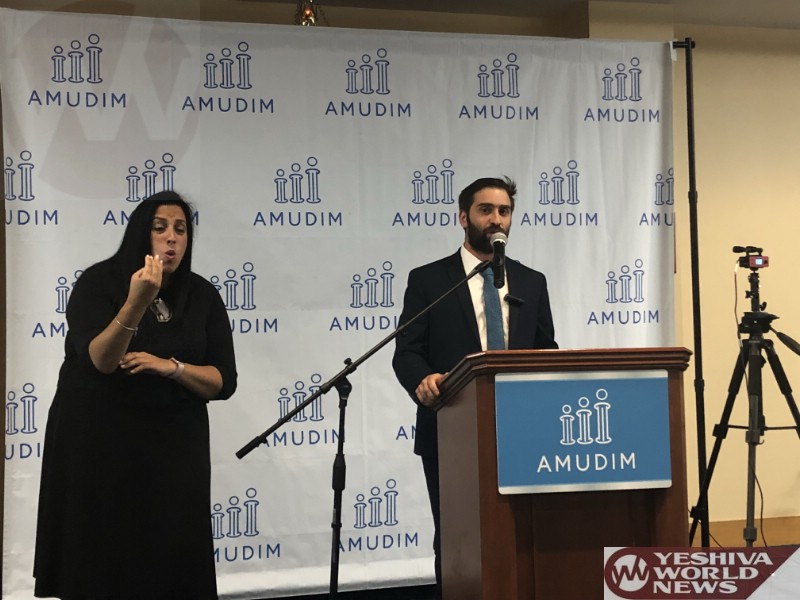
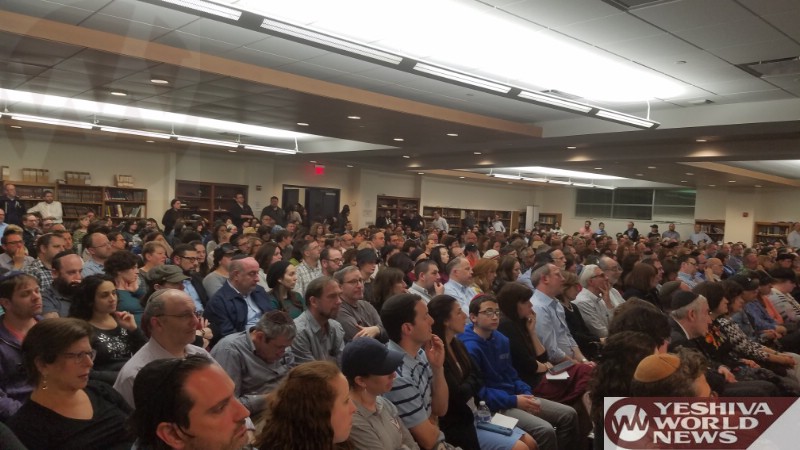

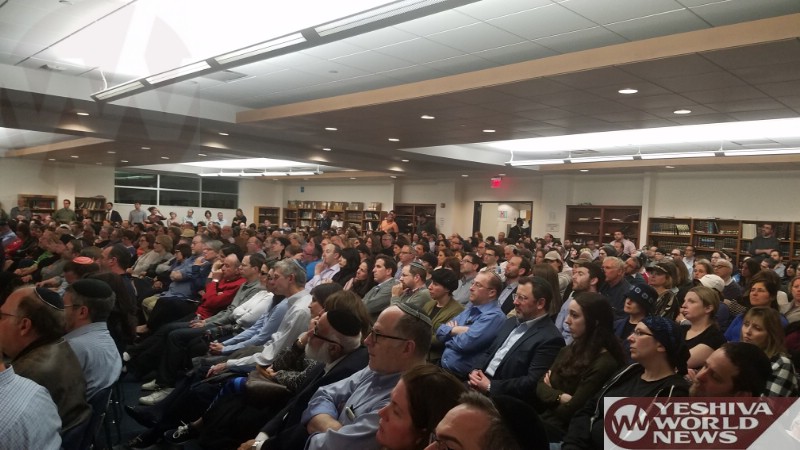
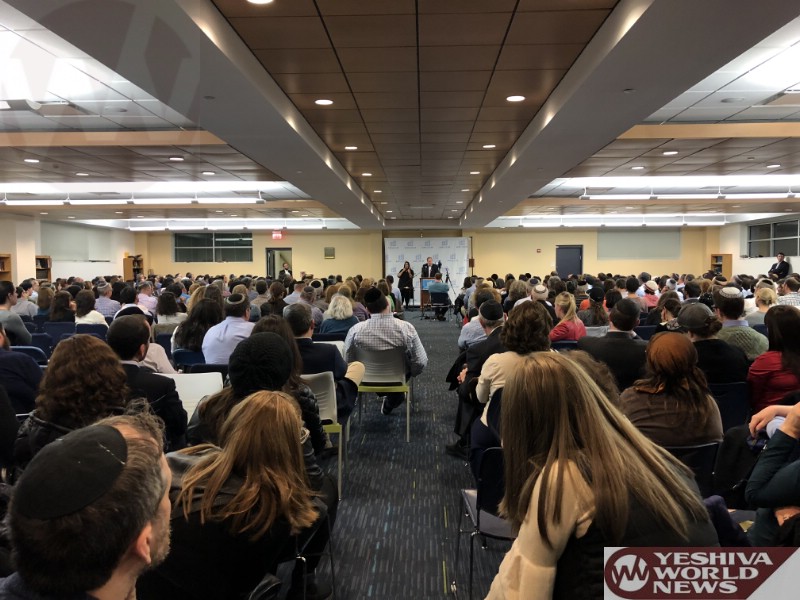

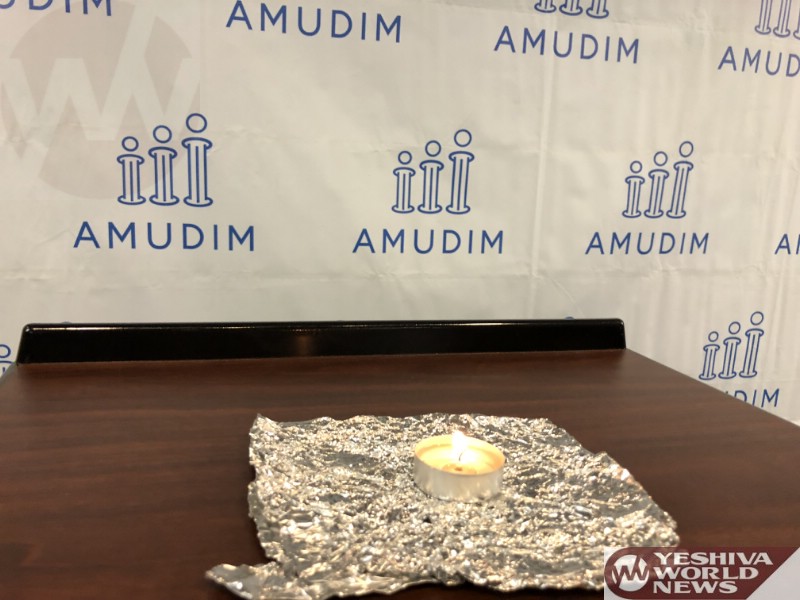
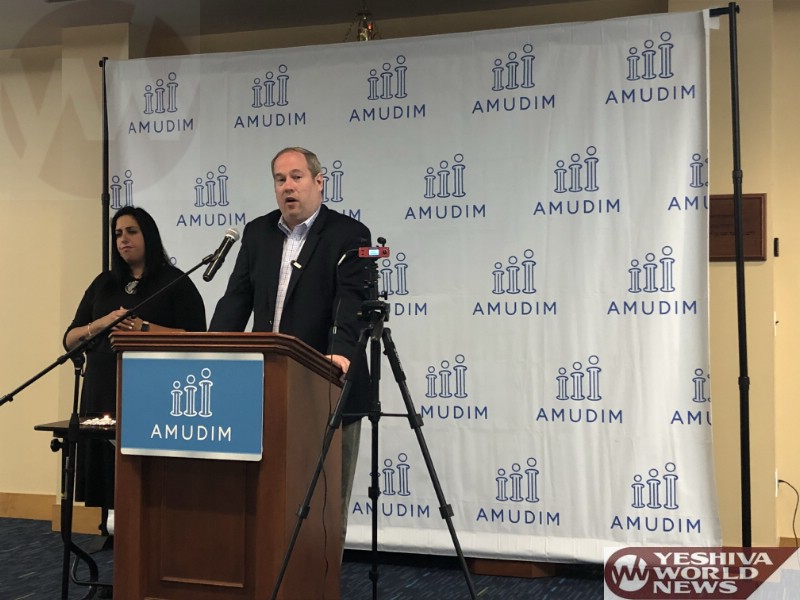
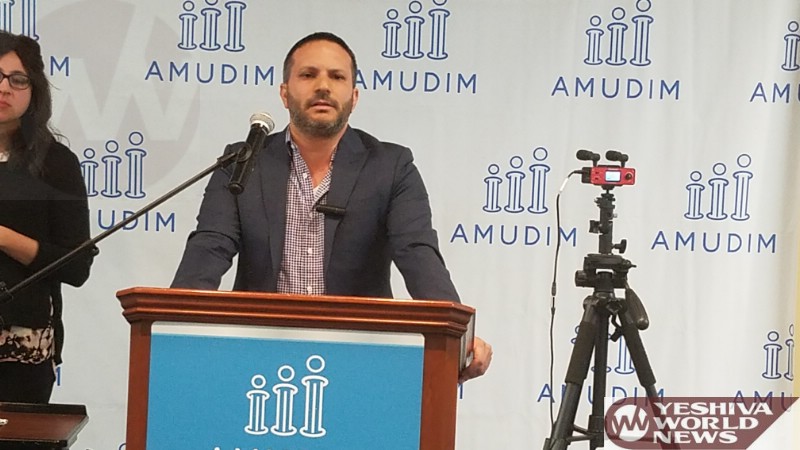
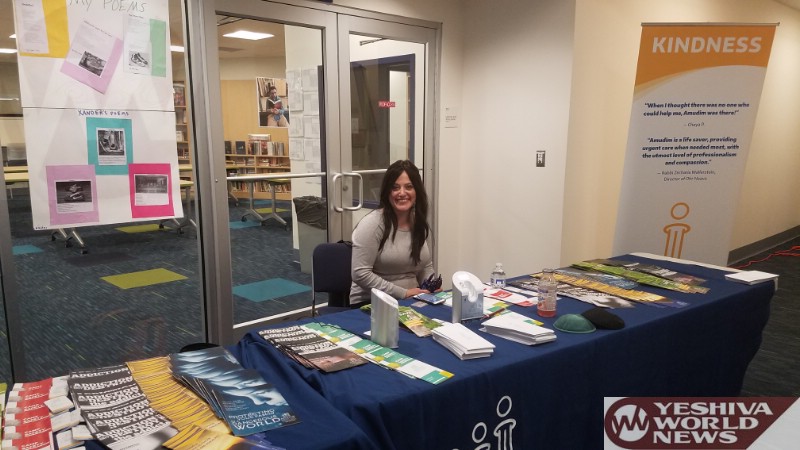
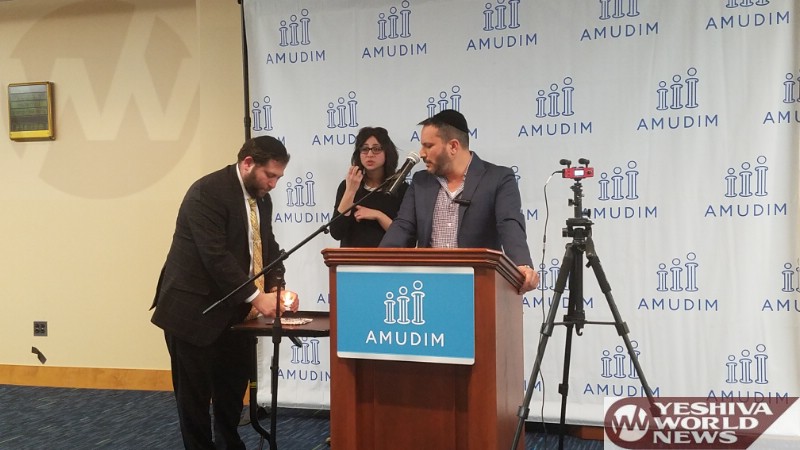
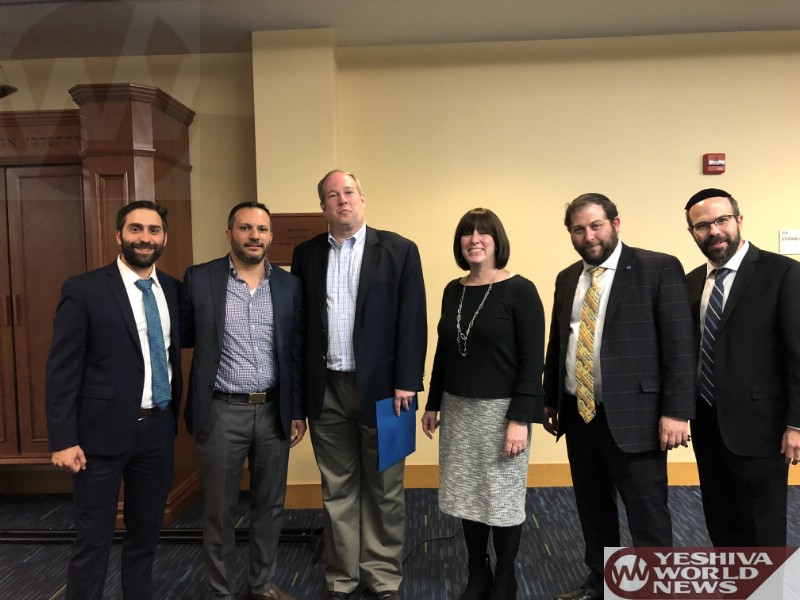
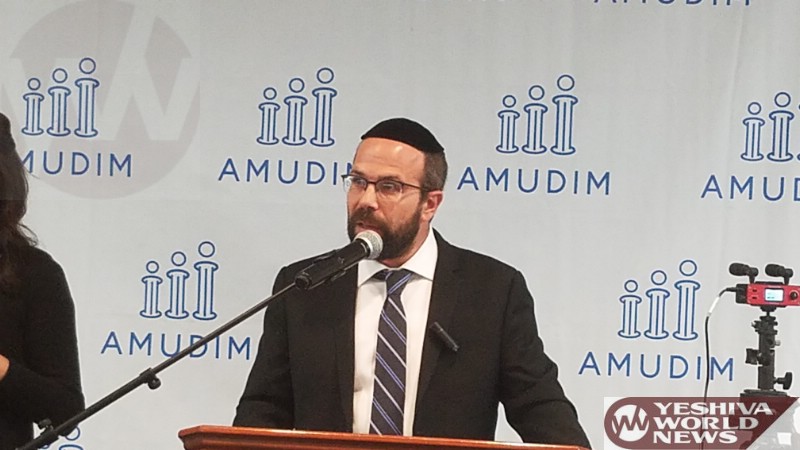
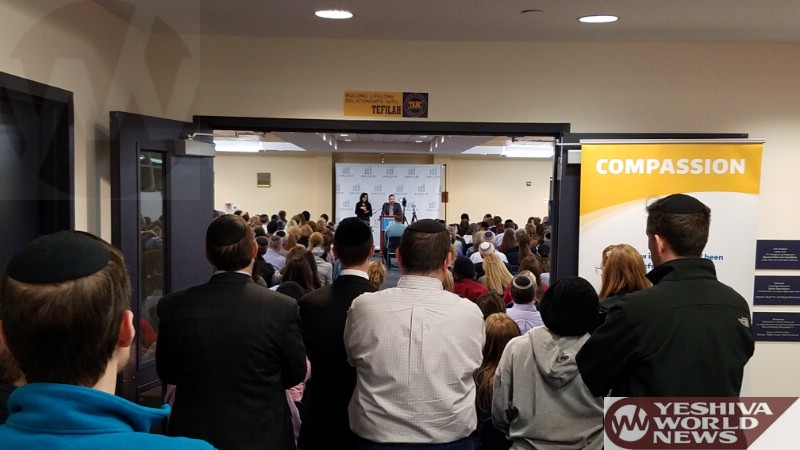
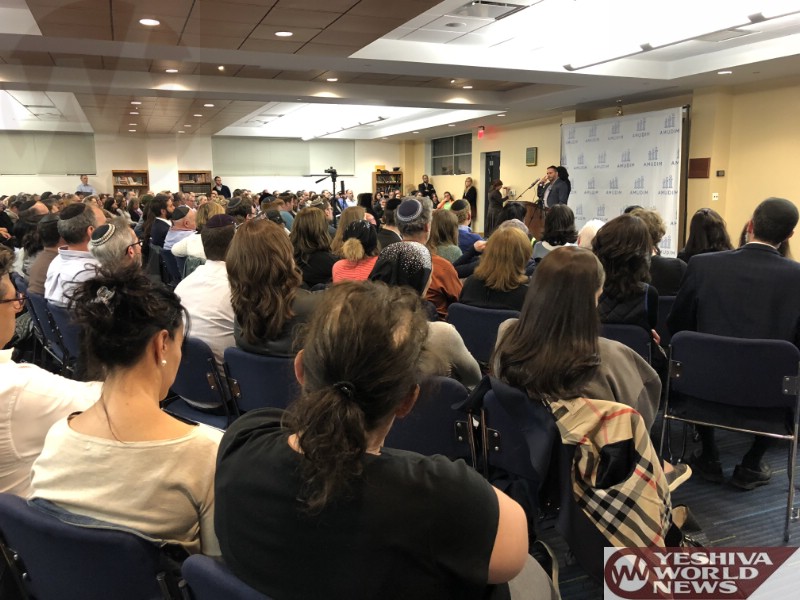
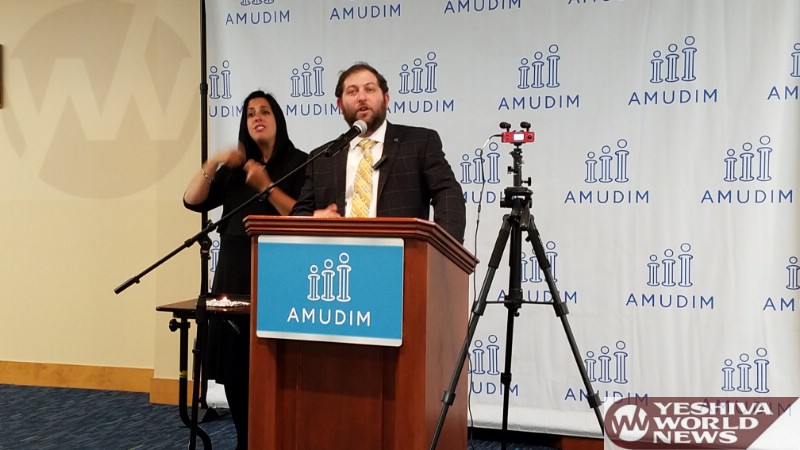












4 Responses
I’m waiting for this event to happen in monsey, Lakewood and all other communities. We all need to admit it happens in all of our communities and not deny it’s existence
a few thoughts from someone who knows the real scoop;
destro613 – no one denies anything , almost every community rav has at times collected to send a boy or girl to rehab ( LA, four winds,florida,remember yatzkan,trish. the marsh.), dozens of uncles & grandparents have swiped 50G hoping for a yeshua . the problem is that most of the time the addict is not really willing to give it up and the results in general are very grim despite the best intentions & efforts . B”H as a community this issue still faces a minute percent of the frum population when you compare it to issues like , parnassah, shiduchim , yiddishkeit, housing.tution.. as far as the stigma its not there, anyone in the know and i am one, knows that all the big psych’s in manhatten are supported by the heimishe . the lesson is ” hatzad hashove shedarkan lehazik ushemirasan olechoh reb tzvi gluck is doing great work one day there will be some real solutions ubachartah bachaim that mother should get the help but if a mother of a shidduch for your child is in rehab should that be of concern or is it trivial?
I learned some new words in sign lang today…
But seriously, thank you for posting this.
I thank Hashem that the shuls i grew up in did not institutionalize drinking.
This seems to have been a real churban over the last twenty years.